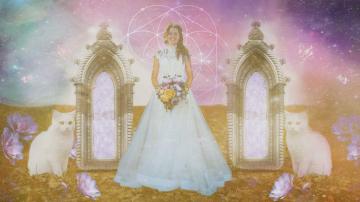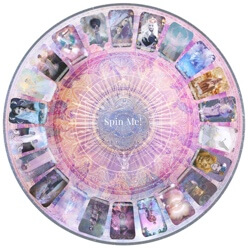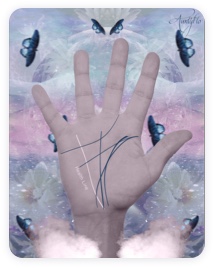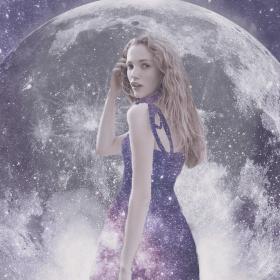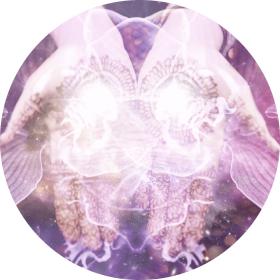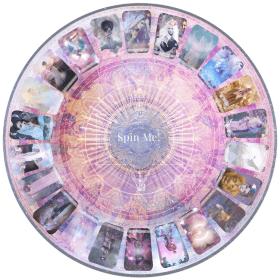Dance

Uncover hidden superstitions meanings
Dancing superstitions have been around for many years.
These superstitions are suppose to help dancers perform better in the theatre and improve ones performance. There has been many different good luck charms for dancers from the middle ages. This article will help you understand the more important superstitions of dancing and performances.
Many cultures place a great deal of emphasis on dance as it is a universal means of expression. Emotions ranging from joyful euphoria to abject grief are easily conveyed through dance. Perhaps as a way of extolling or placating the Gods, ritual dancing for fertility, bountiful harvests, successful hunts and war campaigns, marital unions and funeral processions were (and still are in some places) extremely common. Dance as a social interaction has been compared to non-verbal communication. Most forms of dance can be symbolic of any number of things and are often interpreted differently from one observer to the next.
Regardless of how you believe about ghosts, quite a number of the dancers hold various rituals as well as charms that are meant to attract good luck. Vanessa Zahorian who is a common dancer in San Francisco Ballet normally says a prayer then kisses the ground, she also wears a diamond ring that is said to have been given to her by her parents long ago. There are numerous rituals from various dancers and some others include not washing clothes, making a circle then linking pinkies with the members of corps, applying perfumes, doing and warming one’s hair as well as makeup in some given order that is considered precise.
There are numerous superstitious beliefs that have been attached to the dancing halls and theaters and many of them are said to have originated in the former continental cities of Europe which were dominated by the ballet. Up to these days, the theaters have numerous superstitions and ghost stories. There is some superstition that relates to the ghost light, that the lights on the stage or in the theater should never be switched off no matter what.
The belief is that the light will keep away the ghosts, or even offer illumination for the ghosts to see what is happening on the stage. If one fails to provide the lights then the ghosts will lead to pranks and many other mishaps. There are other superstitions that if the rehearsal goes smoothly then this is bad luck. The fears that have been associated with a perfect rehearsal include having a short performance run, and there are other times that the performance itself will be disastrous in some way.
Another superstition is that if one speaks the last line of a song or play before the opening night this will be extremely unlucky. Whistling it is a bad omen for performances and it is believed that making a whistle sound in the theater and near the dressing rooms is extremely bad luck and thus people are highly discouraged from doing that. There are claims that the one who whistles will very soon lose their job. There are superstitions that there should be at least one day of the week that the dance hall or theater should be closed and this is meant to allow the ghosts some chance to perform for themselves. In many cases, the day has been on Monday nights since it allows the actors a rest after the weekend performances.
If you are a dancer or actor in a theatre you may wish to review the following superstitions which may bring you luck with your performances. Moving on, we need to review general dancing superstitions. Historically, there are many rituals that involve professional dangers that they carry out onstage. Rituals are important for dance shows. Many people believe that if they carry out certain things before a dance performance luck will be on them. The last person to be in the dressing room is normally the luckiest.
- English folklore tells that one must never dance on the street. This brings bad luck.
- To see your partner dance without you is a sign he will soon meet another partner. If a man offers his right hand to dance he will not be honourable.
- North American indians believed that by dancing every hour is great luck, especially if people are eating or drinking.
- To be lead to dance by a man with both hands is suppose to suggest marriage.
- The tarantula spider is suppose to target people that dance.
- In Italy in the 16th century there was a dancing epidemic which was caused by the tarantula. This dance was known as the tarantella and was invented during this time.
- In Japan they had places where their was what was known as a dancing girl. Great fortune would occur if an image of a kitten was placed outside her door. The main character of a play would have great luck if she paints her cheeks red.
- To dance in October is suppose to bring financial abundance.
- It is considered to be a rich omen if a ballet dancer touches her left eye before a performance.
- To wish an actor or dancer good luck is unlucky.
- Many theatres are considered to be haunted by ghosts.
Britain has many old theatres which have been considered haunted as follows: Theatre - Accington in Lancashire - Spinning Jenny Club there is a room that is constantly cold. It is thought that a ghost lives in this room!! Here is some more superstitions around dancing.
- Going to a ball at the last minute is considered extremely lucky.
- It is considered unlucky to wash ones feet before a performance.
- Place a silver coin in the left shoe before a performance to ensure riches.
- Counting couples on the dance floor is unlucky.
- Loosing a bouquet while in a dance hall is unlucky.
- To fall over when dancing means love will be yours.
- To step on someone’s dress or outfit will bring ill luck to that person.
- Opening an umbrella in a theatre is considered bad luck for the performances.
- If one dances without music it indicates that others will soon gossip about the dancer.
- Dancing in yellow denotes a happy life.
By Florance Saul
Oct 29, 2012

